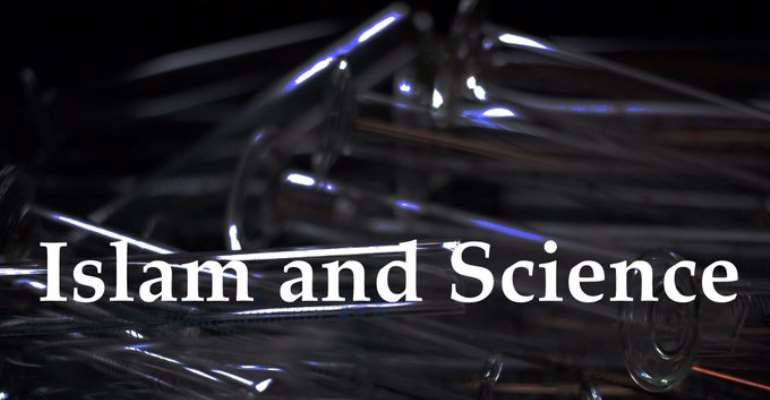Islam and Science: Convergence and Divergence

Let me begin with operational definition of terms and interrogation of issues.
Islam is a world view (Q30:30). It is a Deen based on the ideology of Ibrahim requiring submission and offering of all(Q6:161-165).
It is a totalist system based on a Book that contains everything (Q6:38).
Hence, the book teaches:
1) New knowledge about: a)The Creator - Allaah
b)The vicegerent to the Creator- human beings and
c) The world- material and immaterial.
2) Guidance and Counseling(Laws on do's and don'ts, stories of peoples and civilizations etc) and
3) Prophecy about the world and the human inhabitants.
Science is the study of the nature and behaviour of natural things and the knowledge that we obtain about them. A science is a particular branch of science such as physics, chemistry, or biology. Physics is the best example of a science which has developed strong, abstract theories.
The best discoveries in science are very simple
There are four major branches of science; each branch is categorized in different type of subjects that cover different areas of studies such us chemistry, physics, math, astronomy and so forth.
The four major branches of science are, Mathematics and logic, biological science, physical science and social science.
Assumed father of Science
Galileo Galilei is often referred to as the "father of modern astronomy" and the "father of modern physics". Albert Einstein called Galileo the "father of modern science." Galileo Galilei was born on February 15, 1564 in Pisa, Italy but lived in Florence, Italy for most of his childhood.
Geography is sometimes considered as the mother of all sciences due to its links and influences on a range of other scientific fields including biology, mathematics, anthropology, geology, astronomy and chemistry.
Science is the concerted human effort to understand better the history of the natural world and how the natural world works with observable physical evidence as the basis of that understanding.
Convergence of Islam and Science
In my view, Islam is the basis of Science and therefore the relationship is not that of convergence but Concord.
The first five ayaats (verses) revealed formed the basis of SCIENTIFIC enquiry and subsequent revelations continued to challenge readers to look, observe, measure, contemplate, consider and conclude.
There are quite a number of geographic facts that challenge current knowledge of the subject in the Qur'an. Seven heavens and seven Earth's(Q65:12 ), the relationship between the Day and Night and the Sun and the Moon(Q36:37-40) have yet to be fully discovered by Science.
Qur'anic embryology is just being discovered by modern Science while Artificial Intelligence , big data and deep learning are trailing behind the Qur'anic concepts of the communication capacity of all things (in the Tasbih of Allaah), the response of nature to blasphemy and the future intra-personal communication between man and the beast of the earth(Q19:88-92).
New trends in Science has not fully grasped the tremendous interaction between man and jinn as well as the tremendous exploitation of the constant descent of the angels(especially during Ramadhan) and the reality of supplication and genuflections.
In short, Science could be said to be still far behind Islam based on the all pervading scientific (previous, current and future) contents of the Qur'an on which Islam is based.
No wonder that major scientific discoveries were made by the Muslims as response to their reading of the Qur'an and their desire to worship and please Allaah.
The Compass, the Clock, zero in Mathematics, Algorithm, coffee, and robotics are few examples. Indeed, the world have remained in darkness without the Muslims.
Taofiq AbdulAzeez is a professor of English at the University of Abuja, Nigeria.
